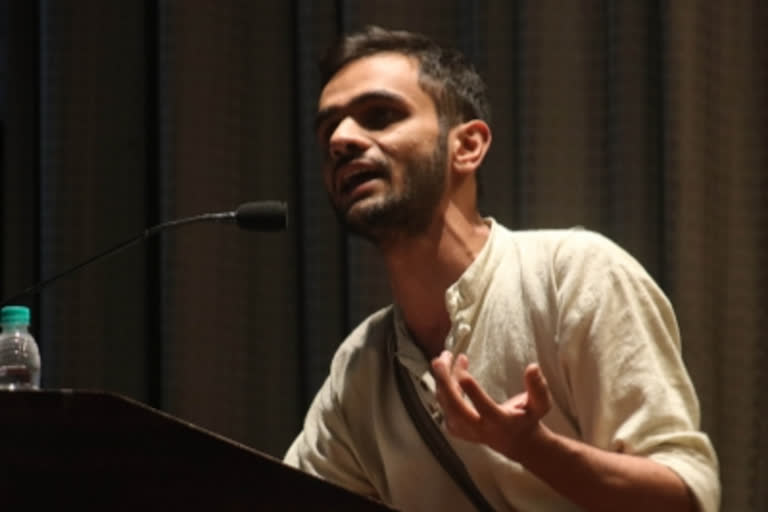New Delhi: Denying bail to former Jawaharlal Nehru University (JNU) scholar Umar Khalid in a case related to the Delhi riots, a Delhi court on Thursday observed that the contention that he is a researcher and his bent of mind can be assessed from his doctoral thesis on welfare aspects of tribals of Jharkhand and other writings is not a relevant consideration while deciding the bail application.
His counsel contended that Khalid is a 34-year-old scholar and researcher, is innocent, and has not committed any crime. It was stated that his bent of mind can be assessed from the fact that he had done his doctoral thesis on "Contesting claims and contingencies of the rule on Adivasis of Jharkhand" and has several academic writings like on "Changing Village Authority in an Adivasi Hinterland: State, Community, and Contingencies of Rule in Singhbhum, 1830-1897".
In the order, the court held that if the bent of mind is to be assessed in this manner, then the co-accused Sharjeel Imam has written a thesis on riots but any thesis or research work done by any accused, by itself, cannot be a ground for assessing mens rea or his bent of mind.
Also read: 2020 Delhi riots: Court denies bail to former JNU student Umar Khalid
A bail application must be decided on facts presented in charge sheet, it said. The court said it agreed with counsel that there are some inconsistencies in the statements of some protected witnesses, however, a finding has to be given on a cumulative reading of statements of all the witnesses and other events presented in the charge sheet. It is also important to highlight that in a conspiracy, various continuous acts are committed by different accused persons, and one act cannot be read in isolation.
At times, if read by itself, a particular act or an activity may appear innocuous, but if it is a part of chain of events constituting a conspiracy, then all the events must be read together, the order noted. Another contention raised by the counsel of the accused was that Khalid was not present in Delhi during the time of riots. In this regard, in a case of a conspiracy, the court observed that it is not necessary that every accused should be present at the spot. It also said there are reasonable grounds for believing that the accusation against the accused are prima facie true.
IANS



